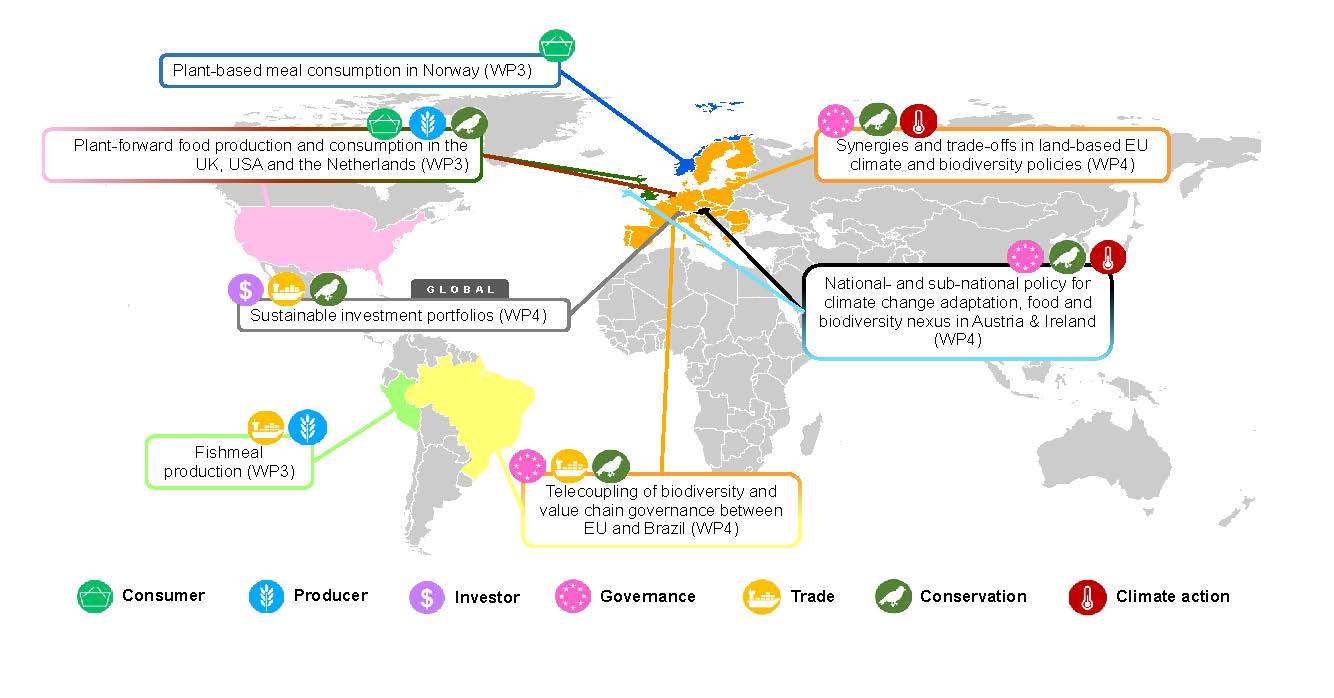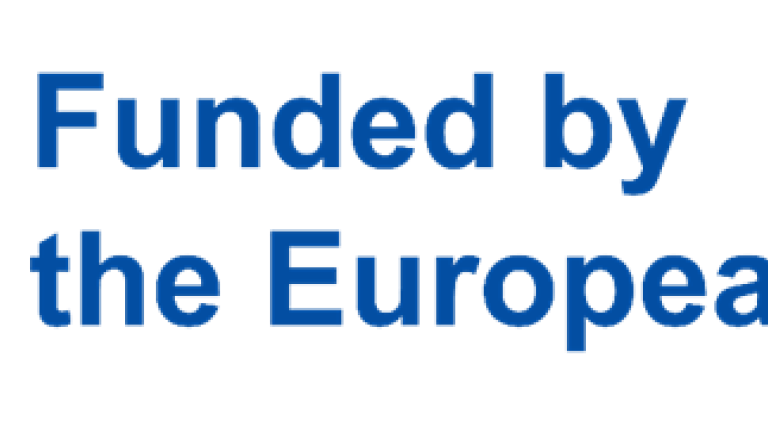
To bend the curve on biodiversity loss, IIASA researchers are co-producing transformative pathways that are workable and effective in a new EU Horizon funded project. Using the latest modelling tools to understand the impact of worldviews and differing equity principles on biodiversity policy outcomes, we will support stakeholders to produce policy pathways that are just and innovative to improve biodiversity across Europe.
 © RAINFOREST
© RAINFOREST
Human consumption, production, and trade of food and biomass are the main underlying causes of biodiversity loss. And demand for food and biomass rises with affluence and population growth, threatening ecosystem service provision and, ultimately, human well-being. Three quarters of the global land area has been significantly changed, more than 80% of global wetlands have been lost, and marine systems are increasingly under pressure. The intensification and expansion of agriculture has enhanced the supply of food and biomass to a growing world population but come at a substantial cost in terms of loss of natural forests and grasslands, overfertilization, and increasingly uniform and biodiversity-poor agroecosystems. In addition, the climate crises represents a progressively larger threat to biodiversity, which may even exceed land use impacts during this century.
The objective of RAINFOREST is to contribute to enabling, upscaling and accelerating transformative change in Europe towards reducing biodiversity impacts of major food and biomass value chains by closing knowledge gaps, demonstrating the effective co-generation and use of knowledge in stakeholder processes to formulate transformative policy options and related innovative governance arrangements. Specifically aiming to:
- co-develop and investigate just and viable pathways for transformative change and policies for their implementation with stakeholders;
- enhance assessment models to allow for the quantification of biodiversity impacts at different spatial and organizational levels (e.g. company, national and global scales);
- highlight and exemplify the application of the investigated pathways for transformative change in case studies;
- investigate and co-generate governance and financial reforms at all scales;
- explain, visualize and communicate our results and tools to a diverse audience.
The project seeks to understand the feasibility of various pathways and transformative change intervention portfolios through 7 case studies from Europe to the Americas. The pathways and elements of the case studies will then be quantified using a modeling toolbox combining integrated assessment models, biodiversity models, input-output models as well as life cycle analysis tools and methods. And the lessons learned from both the analysis of the pathway quantification and the case studies will be synthesized and widely disseminated to support policy making in Europe and beyond.
IIASA Role
IIASA plays an integral role in this project with work packages led by David Leclère from the Integrated Biosphere Futures Research Group (IBF) and Thomas Schinko from the Equity and Justice Research Group (EQU). Work Package 1, led by David Leclère, will advance state-of-the-art science by enhancing existing biodiversity pathways and targets through investigating levers and leverage points along the nexus, considering alternative visions of targets and interventions, including equity and viability principles, focusing with greater details on sectors, actors and their interactions across multiple scales (including teleconnections and trade-offs and synergies), and giving a larger role to stakeholders in knowledge production. Work Package 4, led by EQU’s Thomas Schinko and Christopher Wong, is to identify and address the governance challenges, barriers and opportunities for enacting innovative, just and transitional policies on the part of the EU, national and sub-national governments, businesses and international organizations that enable implementation of the transformative pathways identified in WP1.
Partners and collaborating organisations
Norges Teknisk-Naturvitenskapelige Universitet (NTNU)
Senckenberg Gesellschaft fuer Naturforschung (SGN)
Stichting Radboud Universiteit (RU)
Rheinische Friedrich-Wilhelms-Universitat Bonn (UBO)
Unilever Innovation Centre Wageningen BV (Unilever NL)
Pontificia Universidad Catolica Del Peru (PUCP)
Bonn.Realis EV (BR)
Publication
Leclere, D. & Leadley, P. (2022). Bending the curve of biodiversity loss needs urgent, integrated and transformative action. In: UN Biodiversity Conference (COP 15), 7-19 December 2022, Montreal, Canada.
News

24 September 2024
RAINFOREST Project Workshop

23 July 2024
Introducing the IIASA Justice Framework

27 March 2023




